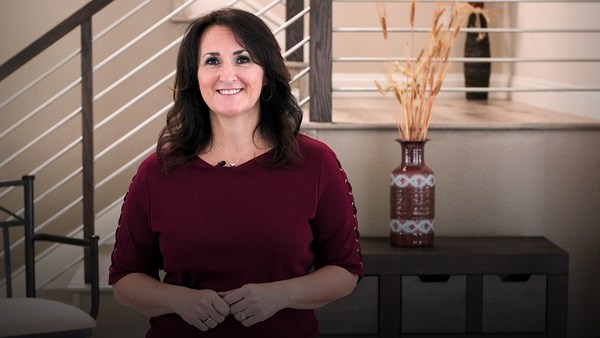So I'm a sports and performance psychologist, which means I get to work with a lot of people like elite athletes, military professionals and top government agencies, whose career and safety depend on peak performance. And I'll never forget this one story a soldier told me about his time serving in Iraq. It was around the early 2000s when the United States had military operations in both Iraq and Afghanistan. And during this time, many locals were encouraged to come forward and share information about potential threats. So one day this Iraqi man approaches the gate of a US outpost to share intelligence about a possible threat. But instead of being treated like an ally, he was met with hostility by the soldier who was debriefing him. But that's likely because just days earlier, soldiers from another unit were killed in a surprise attack. And so as the interview continued, so did the soldier's irritation. And as a result, the Iraqi man became frustrated. In the end, tempers were flaring so high that the interview was cut short, and the following day, two separate units were hit by roadside bombs.
Of course we'll never know for sure if the attacks could have been stopped had the interview gone differently, but the reason why I'm telling you this story is because it's an excellent example of a supercommon problem that keeps so many of us from performing at our best. And it's how well we're able to regulate our emotions, which is one of the most common drivers of a good and bad performance. And it turns out how well you're able to regulate your emotions depends on how susceptible you are to a principle called emotional contagion.
It's just like it sounds. It's how quickly you can catch the emotions of other people and then take them on as your own. The problem is though, most of us are highly susceptible to other people's emotions, which means even the smallest external factor can impact how we perform at work, on the field, and even at home. But lucky for us, we can learn how to avoid other people's emotions by becoming better at regulating our own.
So here's how I like to think about this. Take a look. Now at a glance, this looks like a giant, teddy bear-looking shrub, right? I remember seeing one of these for the very first time while hiking in Arizona, and because it looked soft, I reached out to touch it. But by the time my hand was close enough, the spines on the branches jumped and pricked me -- literally, my hand was covered. And every time I tried to remove one, that little sucker would break off and it would burrow deeper into my skin, just like the guy in the video.
(Video) Man: Argh!
Jessica Garza: And this plant -- it has the perfect name. It's called the jumping cholla, and it left a lasting impression -- figuratively and literally. So much so that when I teach people how to regulate their emotions and avoid catching the emotions of other people, I refer to the "jumping cholla effect." And over the years, I have concluded that the jumping chollas are just like people. They can be pricks, and if you're not careful, they can borrow deep into your skin.
So to understand how this happens in real life, I think it's helpful to know what emotions actually are. And there's two popular theories about where emotions come from. The first theory is called cognitive appraisal, which basically says that the experience of an emotion is actually you evaluating if your current situation aligns with your goals or expectations. So let's say you're on your way home to share some exciting news with your significant other. You walk through the door, you find them sitting on the couch, but instead of a hello or "how was your day?" they leave the room without saying a word. Now, that's not how you expected your evening to go, which could lead to the emotion of feeling annoyed. Does that make sense?
The other theory is called physiological perception, which is all about the emotions we subconsciously assign to the physical changes in our body. Public speaking is a great way to understand this. How perfect, right? Usually, right before I speak I get butterflies in my stomach. Now, if I had that same physical feeling the last time I spoke in public and the speech went well, I may interpret that situation or that sensation as the emotion of excitement. But let's just say I bombed my last speech. I may now interpret that butterfly feeling as nervousness or fear. Basically, we overlay our physiological perception from our past experiences onto our current situation. And what's interesting is that both of these theories also play into how we assess the emotions of other people. Because the part of the brain that processes emotion and memory -- the limbic system -- is considered to be an open-loop system, which means it can be influenced by any external factor.
Think about it: have you ever passed by someone, and without saying a word, you could feel how annoyed or how excited they were? And then maybe you felt annoyed or excited too. It's an interesting concept to think about, because our brains are hardwired to pick up these subtle cues in our environment, which makes it possible for the other person's emotions to jump and attach to you. But what many people don't realize is that every human being is affected by our open-loop system. Many people at work or many people on the same team inevitably catch feelings from one another, sharing everything from jealousy to envy and worry to joy. The more cohesive the group, the stronger the sharing of moods.
And we see this play out in sports all the time. And sometimes even in a good way, like if the team is getting beat but the captain regulates his or her emotions and stays grounded and present, that can increase the likelihood that the rest of the team will stay grounded and present as well -- which is great when it happens, but all it takes is for one person on that team to express a negative emotion for the whole thing to fall apart. Now take a moment and think about how long you've held onto an irritation, especially after an encounter from a prickly person. Was it days? Weeks? Months? Man, I had this one boss, who I let his negative emotions jump and attach to me. And I held onto them for a year -- literally a year. And when I think back now, I can't help but cringe because of all the productivity lost and the amount of stress that I felt all because my boss and I caught each other's frustrations and couldn't escape the cycle of the jumping cholla effect.
But the ideal situation, which improves team and group dynamics as well as individual happiness, is for everyone to control their emotional state by sending back the other person's emotions to them. And research shows that there's two common emotion regulation strategies that can help. And I use both of these with my clients all the time. Do you remember cognitive appraisal where you assign meaning to a situation based on your goals and expectations? Well, the first strategy is called cognitive reappraisal, where you work to reframe how you interpret the situation in order to regulate your emotions. It's like taking active steps to reevaluate your hiking path in order to avoid the jumping cholla.
Let me give you an example. So I once had this soldier who was training to become an interrogator. And every time he got feedback, he immediately became defensive and then would justify his behavior. Eventually he told me that he acted that way because he thought his instructor just didn't like him. So with the use of cognitive reappraisal, he was taught to actively pause and reframe his interpretation and expectation of the situation. So if he thought "my instructor hates me, he always looks upset," he would reframe that thought to "he may look upset but he takes the time to walk me through what I need to fix." Now training your brain to reframe takes time, and sometimes it's not easy because there's a hint of truth within each of our thoughts. But if you work consistently on reframing, you'll be able to engage prickly people without being negatively affected by the other person's mood.
Acceptance is the other emotion regulation strategy. It means what you think. It's learning to accept a moment for what it is and not for what you want it to be. And when I teach people how to do this, I use a three-step framework: "OK; so what; now what." By saying "OK," you halt any additional judgment to the person or to the situation. You then allow yourself space to accept your physiological responses and your perception to what's happening. And once you've distanced yourself from your thoughts and your emotional state, then you can say, "so what" because this helps acknowledge what happened purely as an event. And as you transition into "now what" that means that you've gathered enough information to be able to respond to the event. Now most people can get to "OK," but struggle to get past "so what" because it can be difficult to detach our physiological perception from the situation. But here's what I tell people to keep in mind. Acceptance doesn't mean that you're OK with what happened or that you even want it to continue. It means that you're able to take an aerial shot of the exchange and understand where the prickly spines are and if they're worth attaching to.
Now, both of these strategies are my favorite because they're so powerful, especially on the effects that they have on how we approach life and relationships. And one study even suggests that cognitive reappraisal tends to be associated with more immediate emotional relief in negative situations, whereas acceptance may be better suited for decreasing short-term physiological reactions in unpleasant situations. But the best part? Both of these strategies don't have to be separate practices. Acceptance and cognitive reappraisal can be used interchangeably in order to maintain emotional self-control. The key though to implementing them is to become self-aware when you become emotionally triggered by another person or event. And once you've consciously become aware of either your thoughts, emotions or physical sensations, well then you can practice either technique. These may be common concepts, but I'll tell you they're definitely not commonly practiced. So by remembering the jumping cholla effect, it will help you to be more self-aware and self-regulated. And in turn, well, you'll avoid getting pricked by ... a prick.
Thank you.





